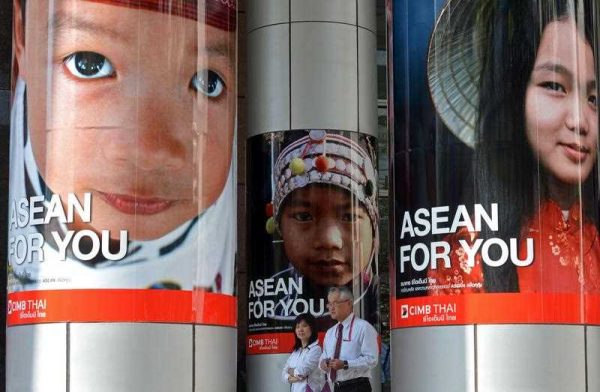Those opposed to greater economic integration typically assume that it will undermine consumer protection, due to unsafe goods coming into local markets. But companies and regulatory regimes quite often ‘trade up’ to higher safety standards. Exporters may need to improve safety features to meet legal requirements in the destination country. It is then inefficient to remove such features for products also sold in local markets, even if the requirements are initially lower. The EU experience also shows how mutual recognition of safety standards set overseas can be balanced with effective joint minimum standard-setting to avoid a regulatory race to the bottom.
Southeast Asia is experiencing similar developments. All 10 ASEAN member states committed to a free trade area from 1999. But from 2003 they agreed on an ASEAN Cosmetics Directive, modelled on an EU regime, which established common technical standards (such as prohibited ingredients) as well as consistent powers for national regulators. The directive initially provided for mutual recognition, but became a fully harmonised regime in 2012. Developing countries like Myanmar still face problems in enforcing these standards, but at least they now have a strong regulatory scheme, thanks to an international agreement.
In 2008, ASEAN agreed on a blueprint to an enhanced ASEAN Economic Community from the end of 2015. Yet this recognised that further efforts would be needed to ratchet up consumer protection laws. The ASEAN Committee on Consumer Protection has encouraged capacity-building, regulatory cooperation and significant improvements in member states.
For example, pre-market controls over product safety by public authorities have improved in some countries. Singapore introduced regulations in 2011 requiring consumer goods to meet standards from four specified international bodies (such as the International Organization for Standardization or EU standards, subject to Singaporean government amendments) or otherwise ‘regional’ or national standards. Exceptions include products regulated by specific laws, such healthcare or certain foods. This complements an older regime that imposes minimum safety standards for 45 specific (higher-risk) general consumer goods.
Under Malaysia’s Consumer Protection Act 1999, only a few specific mandatory performance standards have been set recently by the general regulator. But the Act has a ‘minimum safety requirement’, requiring all consumer goods to be reasonably safe. Unlike the corresponding regulations in Singapore, Malaysia’s Act does not directly reference standards set by international bodies. But international standards can offer more certainty for suppliers and specific protections for consumers — provided the organisations allow adequate input from consumer groups.
Yet in other ASEAN countries, there is still no ‘general safety requirement’. Consumer affairs regulators typically have limited jurisdiction to set minimum safety standards, even for specific goods such as foods. Instead, those powers are reserved for other, usually longer-established and better-resourced government departments (such as a ministry of health or industry). These departments may also be more concerned about promoting the regulated industries’ immediate economic interests, rather than the more diffuse interests associated with consumer protection.
Such limited powers in pre-market control for most Southeast Asian general consumer regulators sit awkwardly with their wide-ranging powers to implement post-market controls to ensure the safety of consumer products. Most general consumer regulators can now ban goods found to be unsafe or force a recall. They can usually intervene at this stage with or without cooperation from any relevant national sectoral regulators. But the latter retain the lead even under new Consumer Protection Acts enacted in Vietnam in 2010 and Myanmar in 2014. Brunei still lacks a framework consumer protection law altogether.
A further regulatory gap across ASEAN countries is that there is no requirement for suppliers to notify national consumer regulators if conducting a voluntary product recall (as required in Australia), let alone if they become aware of a serious product-related accident (as in Australia and the EU). The closest provision is under Vietnam’s Law, requiring specific public notices of recalls if suppliers learn of defects.
This gap limits the capacity of ASEAN regulators to accurately analyse injury risk data and use what powers are legislated for them. It restricts the usefulness of the ASEAN Committee’s Product Alerts webpage, compared to the EU’s extensive Rapid Exchange of Information System database of unsafe products. The gap also makes it harder to develop recall guidelines.
ASEAN countries have also been encouraged to reform private law mechanisms that indirectly encourage suppliers to improve product safety and promise fuller compensation to injured consumers. Indonesia’s 1999 Consumer Protection Law reverses the burden of proof. The manufacturer has to prove that it was not negligent in supplying a product that harms a consumer. Five other countries have gone one step further by enacting EU-like strict product liability legislation, so the consumer only has to prove that a safety ‘defect’ caused harm. Indeed, these statutes often go further than the EU law in terms of the substantive rights given to consumers.
But problems of access to justice limit their effectiveness in practice. Thailand is an exception: courts provide special procedures for consumer complaints, consumer NGOs are active and a US-style class action regime was enacted this year by the military government. Procedural law reforms are the next frontier for further enhancing consumer protection amidst ongoing trade liberalisation in and around Southeast Asia.
Luke Nottage is professor at Sydney Law School and founding co-director of the Australian Network for Japanese Law (ANJeL).
A version appears on the author’s Japanese Law and the Asia-Pacific blog. Background research was supported by the Sydney Southeast Asia Centre as well as AusAID and UNCTAD consultancies for the ASEAN Secretariat.

